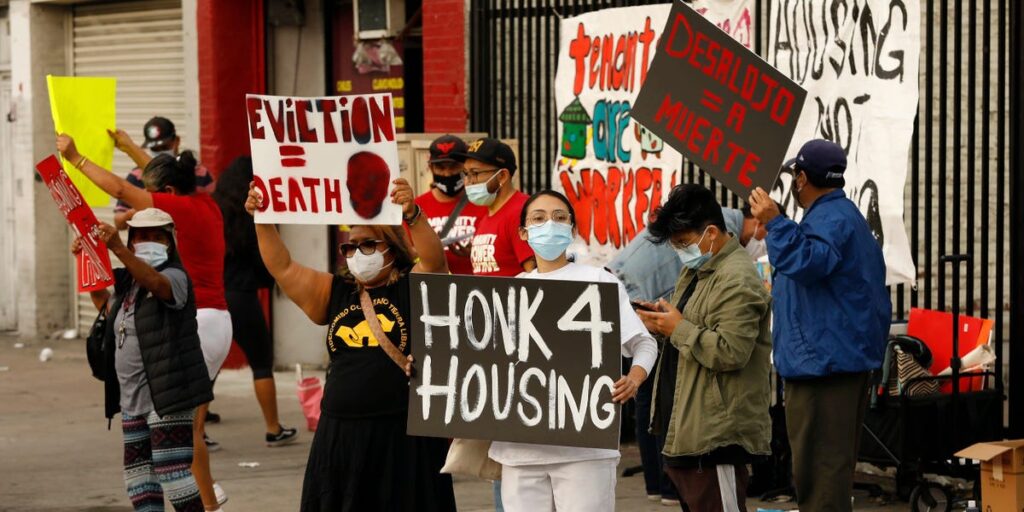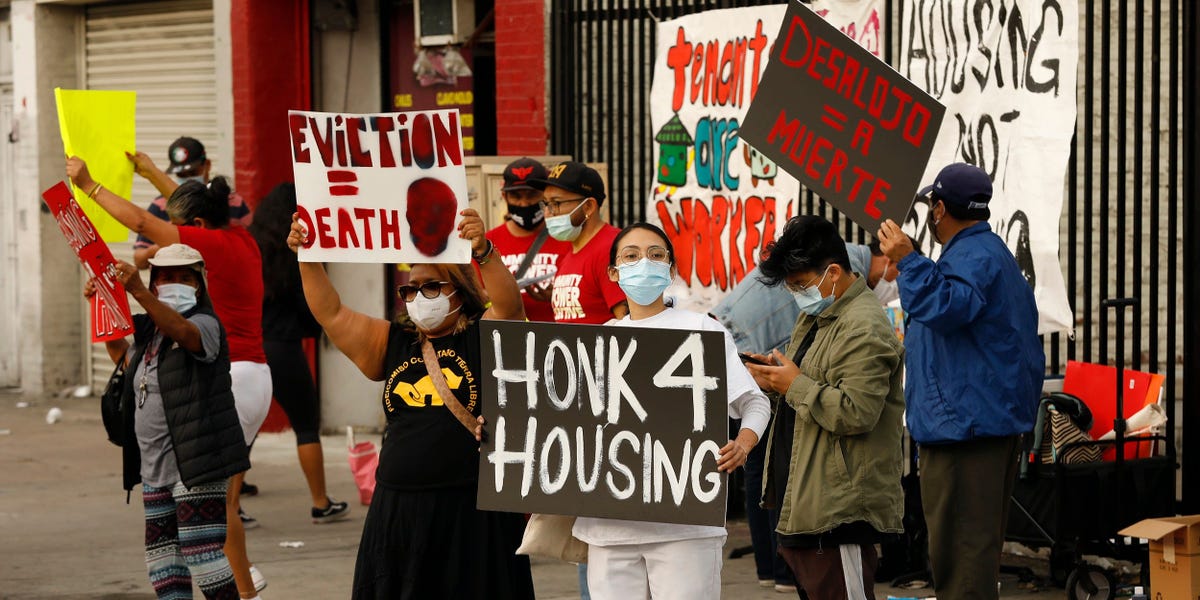
The Chilling Truth: How Long Can a Landlord Ignore a Broken AC?
In the sweltering heat of summer, a malfunctioning air conditioning unit can quickly transform a comfortable home into an unbearable oven. For renters, the situation is often compounded by the question: how long can a landlord ignore a broken AC? The answer, unfortunately, isn’t always straightforward, as it hinges on a complex interplay of local laws, lease agreements, and the specific circumstances of the situation. This article will delve into the nuances of landlord-tenant law, exploring the rights and responsibilities of both parties when faced with an AC breakdown. We’ll examine the legal ramifications of inaction, the importance of clear communication, and the steps tenants can take to protect their comfort and well-being. The central question, how long can a landlord ignore a broken AC, is one we will address throughout.
Understanding the Lease Agreement
The foundation of the landlord-tenant relationship is the lease agreement. This legally binding document outlines the terms of the tenancy, including the landlord’s obligations regarding property maintenance. Crucially, the lease often specifies the landlord’s responsibilities for providing essential services, which can include air conditioning. Before delving into specific timelines, tenants must carefully review their lease. Does it explicitly state that the landlord is responsible for maintaining the AC unit? Are there any clauses that limit the landlord’s liability or specify a timeframe for repairs? Understanding these details is the first step in determining your rights and the landlord’s obligations. Your lease agreement is the starting point for understanding how long can a landlord ignore a broken AC.
Many leases will include a “warranty of habitability” clause, which implies that the landlord is legally obligated to provide a safe and habitable living environment. This often includes ensuring that essential utilities, such as heating and, in many climates, air conditioning, are in good working order. If the AC is deemed essential for habitability due to extreme heat, the landlord’s responsibility becomes even more critical.
State and Local Laws: A Patchwork of Regulations
The legal landscape surrounding landlord-tenant issues is primarily governed by state and local laws. There is no single federal law that dictates how long can a landlord ignore a broken AC. This means that the specific regulations vary significantly depending on where you live. Some states have specific statutes that address the repair of essential services, including air conditioning. These laws may stipulate a reasonable timeframe for repairs, often ranging from a few days to a couple of weeks. Other states may be less specific, leaving the determination of a reasonable timeframe to the courts, based on the specific circumstances of the case.
In addition to state laws, local ordinances can also play a role. Some cities or counties may have their own regulations regarding property maintenance and the provision of essential services. Renters should research their local laws and ordinances to understand their rights and the landlord’s obligations. Check with your local housing authority or a legal aid organization for information specific to your area. This information will help you determine how long can a landlord ignore a broken AC in your specific situation.
Defining “Reasonable Time”: A Critical Factor
Even in states with specific repair timelines, the concept of “reasonable time” often comes into play. This is because the exact timeframe can be influenced by several factors, including the severity of the problem, the availability of parts, and the workload of the repair technician. A simple fix, such as replacing a blown fuse, might be considered reasonable to complete within a day or two. A more complex issue, such as a compressor failure, might require a longer timeframe, potentially several weeks. The landlord’s efforts to expedite the repair process are also a factor. Did they promptly contact a qualified technician? Are they actively monitoring the progress of the repairs? These actions can influence whether the landlord’s response is deemed reasonable.
The definition of “reasonable time” is crucial to answering how long can a landlord ignore a broken AC. Courts often consider factors like the weather conditions, the severity of the impact on the tenant’s living conditions, and the landlord’s efforts to resolve the issue. A landlord who is actively working to fix the problem will likely be given more leeway than one who ignores the issue.
The Importance of Communication
Clear and documented communication is essential in any landlord-tenant dispute. When the AC breaks down, the tenant should immediately notify the landlord in writing, preferably via email or certified mail. This written notification should include a detailed description of the problem, the date and time it occurred, and any relevant lease clauses. The tenant should also request that the landlord take prompt action to repair the unit. Keep a copy of all communication for your records.
After the initial notification, the tenant should follow up with the landlord if no action is taken within a reasonable timeframe. This follow-up should also be documented in writing. Consistent communication helps establish a clear record of the problem and the landlord’s response. This record can be crucial if legal action is required. Proper communication helps clarify just how long can a landlord ignore a broken AC, and protects the tenant’s rights.
Tenant Recourse: What Can You Do?
If the landlord fails to address the AC problem within a reasonable timeframe, the tenant has several options for recourse. These options vary depending on the state and local laws and the specifics of the lease agreement. Some common remedies include:
- Withholding Rent: In some jurisdictions, tenants may be allowed to withhold rent until the AC is repaired. However, this is often subject to strict rules and conditions. The tenant may be required to place the rent money in an escrow account until the repairs are completed. This approach needs to be carefully considered and in line with local laws.
- Repair and Deduct: Some jurisdictions allow tenants to repair the AC themselves and deduct the cost from the rent. This option typically requires the tenant to notify the landlord of the problem and give them an opportunity to make the repairs. If the landlord fails to act, the tenant can then hire a qualified technician and deduct the reasonable cost of the repairs from the rent.
- Breaking the Lease: If the landlord’s failure to repair the AC constitutes a breach of the lease agreement, the tenant may have grounds to terminate the lease without penalty. This option may be available if the AC is considered essential for habitability and the landlord’s inaction renders the property uninhabitable.
- Legal Action: Tenants can pursue legal action against the landlord, either by filing a lawsuit in small claims court or by seeking the assistance of a legal professional. The tenant may be able to recover damages, such as the cost of alternative housing or compensation for the discomfort caused by the lack of AC.
Before taking any action, tenants should consult with a legal professional or a housing rights organization to understand their rights and the potential consequences of each option. Understanding the available options is key to answering how long can a landlord ignore a broken AC effectively.
Documenting the Problem: Building Your Case
Thorough documentation is essential to protect your rights. Keep detailed records of everything related to the AC issue, including:
- Communication: Save copies of all emails, letters, and text messages exchanged with the landlord.
- Photos and Videos: Take photos or videos of the broken AC unit and any related issues, such as water damage or mold growth.
- Witness Testimony: If possible, obtain statements from any witnesses who can corroborate your claims.
- Repair Attempts: Keep records of any attempts to repair the AC, including the dates, times, and names of the technicians involved.
- Weather Conditions: Document the temperature inside your apartment and the outside temperature.
This documentation will be invaluable if you need to take legal action. The more evidence you have, the stronger your case will be. This information helps in determining how long can a landlord ignore a broken AC and what steps the tenant can take.
Preventative Measures: Proactive Steps for Renters
While renters can’t control the actions of their landlords entirely, they can take some proactive steps to protect themselves. Regularly inspecting the AC unit’s air filter and cleaning or replacing it as needed can help prevent minor issues from escalating into major breakdowns. It’s also wise to establish a good relationship with the landlord. Clear and open communication can often lead to faster and more effective solutions to maintenance problems. Understanding your rights and responsibilities as a tenant is also vital. Knowing the answer to the question of how long can a landlord ignore a broken AC is a great starting point.
Additionally, renters should document the AC unit’s serial number and model information. This information can be helpful when reporting a problem and can expedite the repair process. Consider taking photos of the unit at the beginning of your lease, documenting its condition. This can provide additional evidence of the unit’s state. It’s always a good idea to review the lease carefully before signing it, ensuring that the agreement clearly addresses AC maintenance responsibilities.
Landlord Responsibilities: Beyond the Basics
Landlords have a legal and ethical responsibility to provide tenants with a safe and habitable living environment. This includes maintaining essential utilities, such as air conditioning, especially in areas with extreme heat. Ignoring a broken AC can have serious consequences, including legal liability and damage to the landlord’s reputation. Landlords should prioritize prompt repairs and take proactive steps to prevent AC breakdowns. This includes regular maintenance and inspections. The question of how long can a landlord ignore a broken AC is a legal and ethical one for landlords.
Landlords should also be responsive to tenant complaints and communicate effectively about repair timelines. Transparency and open communication can help build trust and prevent disputes. Furthermore, landlords should familiarize themselves with local and state laws regarding property maintenance and tenant rights. This knowledge is essential for complying with legal obligations and avoiding potential legal issues. Ultimately, the question of how long can a landlord ignore a broken AC reflects on the landlord’s commitment to providing a comfortable and safe living environment.
Conclusion: Navigating the AC Breakdown
Dealing with a broken AC can be a stressful experience for renters. Knowing your rights, understanding your lease agreement, and communicating effectively with your landlord are crucial steps in resolving the issue. The central question, how long can a landlord ignore a broken AC, doesn’t have a simple answer, as it depends on the specifics of the situation. However, by understanding the legal framework and taking proactive steps, tenants can protect their comfort and well-being. Landlords also have a responsibility to address AC breakdowns promptly and efficiently.
Remember to document everything, communicate clearly, and seek legal advice if necessary. The goal is to ensure a habitable living environment and a fair resolution to the problem. [See also: Tenant Rights in Hot Weather] [See also: Landlord Responsibilities: Maintenance & Repairs] [See also: What to Do When Your Apartment is Unlivable] [See also: Legal Options for Renters Facing Unresponsive Landlords]
The answer to the question of how long can a landlord ignore a broken AC is complex, but by understanding the law and your rights, you can navigate this challenging situation with greater confidence.


